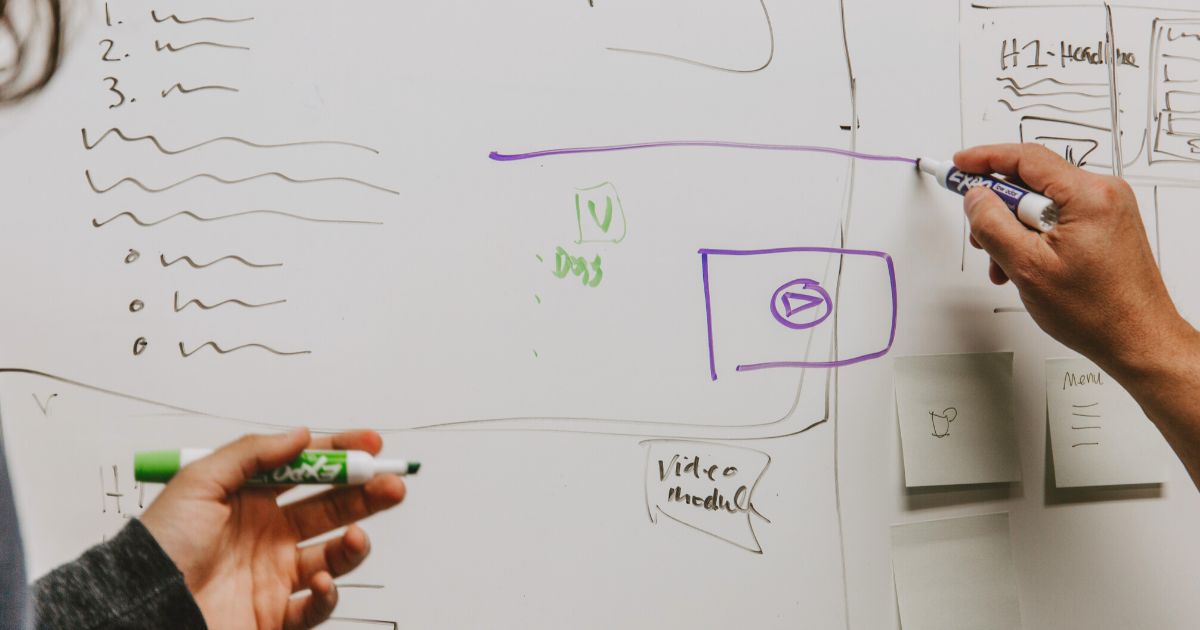How to Make the Most of a Social Science Degree: My Path to an Internship

Written by: Taniya Spolia, Social Science Student
Photo by: Kaleidico on Unsplash
I think I was in the seventh grade when we were forced to spend our computer lab period to "plan our career"using the Canadian Government job bank.
For anyone that's done Careers and Civics, you know exactly what I'm talking about. That questionnaire of 50 parts that tells you to rate the attractiveness of "doing repetitive tasks" and "finishing one job before the next" - yes, that one.
I remember it being the end of the period and everyone was comparing their results. My best friend was going to become a magician, the boy at the end of the row was on route to being a lobbyist and I definitely heard someone talking about their future in optometry.
I, on the other hand, had the potential to become the ultimate sign holder.
That day I decided that no matter what, I can't move through my life without direction. 13-year-old me entered her midlife crisis a tad too early, and as I scoped for coveted career choices to pursue I landed on psychiatry.
I spent the next six years of my life pursuing this "dream" of becoming a doctor: volunteered at a hospital halfway across the world, got rejected from McMaster Health Science, joined Medicines Sans Frontiers and failed first year physics.
I didn't make the cut-off for the Medical Science program after first year and all of a sudden 19-year-old me was exactly where 13-year-old me was all those years ago. I didn't know what I wanted to do and I had no direction.
Social Science was the obvious choice. With the opportunity to take a wide array of courses, I wasn't forced to marry a single major. Low commitment to any particular path gave me the opportunity to just learn for the sake of learning. I took a course called "the philosophy of talk," and then also "psychology statistics." I layered on MOS courses.
In each unique subject that I studied, I was challenged to think in a different way. I exercised parts of my mind that I never had to use before, and it made me want to challenge myself in even more ways. I joined the Western Gazette and I picked up graphic design. I volunteered as a cat socializer at the London Humane Society and I took care of immigrant children as their mothers joined a support group through Big Brothers Big Sisters. I challenged myself educationally and emotionally, not dedicating myself to a single path but instead to options I can explore.
Now, don't get me wrong, I didn't pick up these skills and traits in a matter of months. Frankly, I'm not even good at many of the things I tried my hand at, but I put myself out there.
At this point, you're probably wondering, "What does any of this have to do with my internship?" Well, I am 100 percent certain that had I gone through the structured traditional business schooling from the start of my degree, my GPA would be higher and my resume would have been stacked with business-oriented experiences. I'm also convinced that without my open-ended learning approach, I would have never gotten the sales internship at Labatt and then the return offer into their Global Management Trainee program.
Here's why: My biggest asset is that I'm comfortable in uncomfortable settings. I am willing to learn and I am open to change. These overarching personality traits are products of the mobility in my education and my openness to not following the status-quo route to graduation.
And so, when I received my internship in an industry I knew nothing about, in a province on the other side of the country and in a function I had only studied for a year, I felt okay. More than okay actually, I was excited.
This wasn't a stepping stone to a vision I had for myself, but it was yet another opportunity to explore a field I knew so little about.
In my job itself, I was thrown many curveballs. I had to work heavily with data and strategy. I did human resource projects on the side and I spoke to product innovation teams. I learned that the marketing I was taught in school was so different from what I did in practice.
But, I loved it. It wasn't a summer where I repeated the eight school months in four, but it was an opportunity to build and expand on the skills I had been developing all this time. It was nothing like I expected.
Funnily enough, I'd also hear from my peers how surprised they were from their internships. That it wasn't what they thought it would be, especially those in consumer behaviour oriented roles. And as they expressed their, sometimes, dissatisfaction I couldn't help but relate to them. What people go through in their first internships is what happened to me in my first year of university. The year where my future as a sign holder felt a lot brighter than that of a doctor.
And so it's important to take the idea of diversification not only to your education, but to any experiences that come after - whether that be an internship or a full time job.
As I near my graduation and as I look forward to working at Labatt full-time, I realize that, although there were many moments of stressful uncertainty, my undergrad was worth it.
So, take risks in your education. Use your electives to learn outside of the silo of your degree. Don't just take the easy route, but actively apply yourself to different subjects. Be open to internships that surprise you and get ready to surprise yourself.
Taniya completed her internship as part of the Social Science Internship Program. Learn how you can integrate work experience into your degree at socscintern.uwo.ca.
Published on

